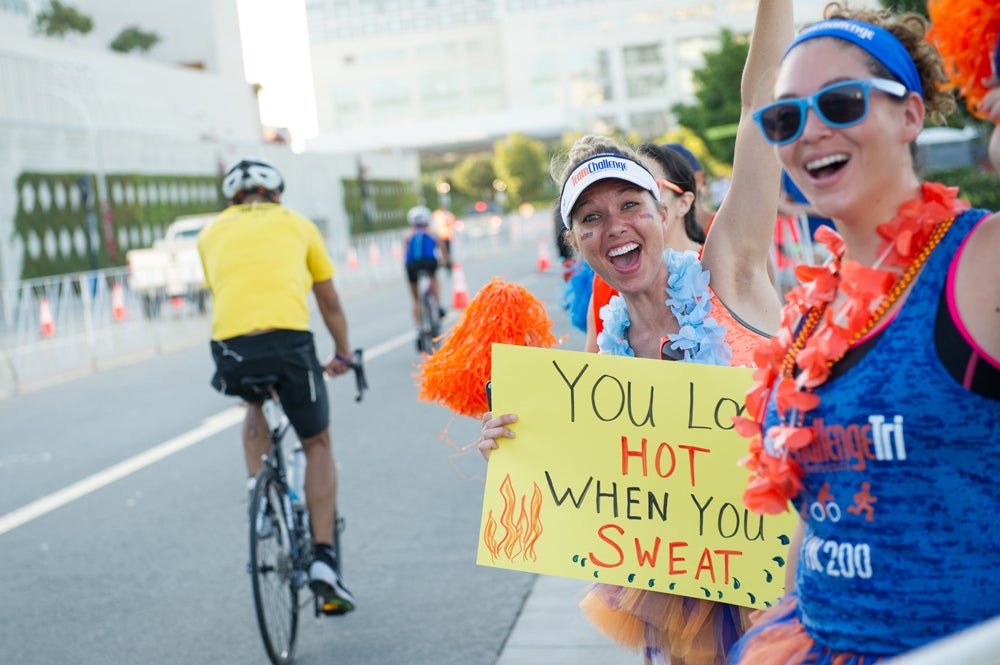How To Choose Your First Triathlon

Photo: TriRock
One of the first things you’ll want to do after deciding you want to be a triathlete is pick a goal race so you can plot your course of action. We recommend starting with a sprint-distance race (or even a shorter super-sprint), which will offer a solid challenge to newbies without being too overwhelming. Your race choice should be guided by answering a few other key questions:
What’s your athletic background?
Perhaps you are a runner who’s grown weary of pounding the pavement and want to mix up your training and racing. Or maybe you’ve been inspired to do your first triathlon after watching the NBC broadcast of Ironman, athletic prowess be damned. Either way, you’ll need to chart your course by first making an honest assessment of your athletic background and your unique health/fitness situation. It’s always wise to consult a physician when starting any new exercise regimen, including kick-starting your triathlon training. If you are an active, generally fit person, you’ll need less time—as little as a few weeks—to prepare for your first race and should select a race accordingly. If you don’t have much of an athletic foundation, or have any preexisting health or fitness issues, you’ll want to call in the professionals (physician, coach) to make sure you’re not overcommitting yourself too soon. Every athlete presents a unique case.
Are you a fair-weather competitor?
The triathlon season in the U.S. largely revs up in March and winds down in October. To make your first race a more pleasant experience, you may want to consider choosing a race that occurs when (and where) you can count on temperate, pleasant conditions. You will already have a number of first-time hurdles to overcome, so why not dismiss inclement weather from the equation from the get-go? If cool temps don’t bother you, consider diving into an early-spring race. The perk: Early-season races tend to be more mellow, as competitors are usually just ramping up for the season and use these races as a means to gauge early-season fitness.
RELATED: How To Fuel For Your First Race
Do you have a preference for wearing a wetsuit?
If you’d rather not wear a wetsuit for your first race, you’ll want to choose an event that occurs later in the season, when there’s less likelihood of a wetsuit-required swim. A lot of newbies don’t like how restrictive a wetsuit can feel and want to focus on just tackling the swim without the added hassle of getting in and out of a wetsuit in a short race. On the flip side, some beginners like the added confidence and buoyancy that a wetsuit provides (and figure they may as well get used to wearing a wetsuit anyway), no matter how short the swim leg. Consider your own comfort level when it comes to wearing a wetsuit, and let that factor into your race selection.
Are you looking for a lot of outside support and encouragement to get to the finish?
Or are you one of those rare creatures who is completely self-motivated? A little love from the sidelines on race day can go a long way in your journey to your first-ever finish line, and it’s smart to select a race that has a reputation as a beginner-friendly event, such as the TriRock Series (Trirock.competitor.com). A mellow vibe, extra supportive volunteers and race staff, and a festive atmosphere will make the day that much more enjoyable and memorable. If you really thrive on outside encouragement and camaraderie, join a charity training group where first-timers get help with structuring training (typically a goal race is picked for you) and work together toward a shared goal while benefiting a worthy cause.